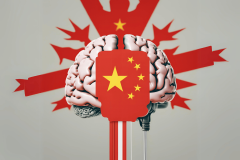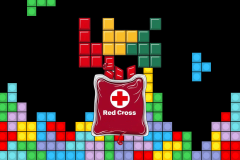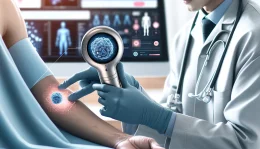In the era of technologies and digital screens, millions of products are marketed as “healthy.” But why is it that a growing number of people are challenged with chronic diseases and mental illnesses? Here is maintaining perfect health in the world of new technologies and devices.
What apps are you more likely to click on?
While we have nutrition and fitness apps at our fingertips, the harsh reality is that these live-saving apps and tech are nowhere near as popular as fast food delivery apps. Internet addiction and trolls can also put some vulnerable people at risk of mental illnesses.
To live a healthy happy life in the midst of convenient choices, we need to embrace the power of technology while practicing the most primitive ways of achieving health.
Here are 5 secrets of how you can use but not abuse technology to be healthy.
Unleash the power of your genetics
Recently, CRISPR-based therapy was used to treat inherited blindness for the very first time in human history. This officially brings human gene-editing from science fiction to reality.
Your DNA is the blueprint for building you – your eye color, ancestry, and risks of genetic diseases.
If your health is partly determined by genetics, doesn’t it make sense to crack this code and prepare for what the future holds?
Indeed, commercial genetic testing has gained rapid popularity all over the world. Dozens of companies like 23anMe are competing to offer you the most comprehensive genetic interpretations.
In our genetic makeup, millions of single-nucleotide polymorphisms, or SNPs, hold the secrets to your:
- Disease risks and tendencies
- Response to medications, food, and exercise
- Physical traits and mental health
- Plus more!
With this information, you can take active actions to improve your lifestyle, inform your doctor, and manage potential diseases. Our medical system is moving towards an exciting era of personalized data-driven practice as we speak.
Know your gut bacteria
Did you know that our gut has 10 times the amount of cells compared to everything else in the body combined?
It’s huge. Our gut houses at least 1000 different types of bacteria – the good, the bad, and the ugly.
For good bacteria to flourish in our gut, we need to feed them with fermentable fiber from plant-based foods, also known as “prebiotics.” With these healthy fuels, the good gut bacteria start to:
- Protect you against infections and inflammation
- Produce healthy short-chain fatty acids
- Help you manage weight and chronic diseases
- It even improves your mood!
If you are serious about optimizing your gut health, you can even get a microbiome sequencing that tells you exactly what bacteria are in your gut. Compared to conventional DNA sequencing, this is a relatively new technology. Nevertheless, researchers are very excited about harnessing the massive amount of gut information for disease diagnosis and treatment.
In the near future, it may become commonplace to get personalized nutrition plans and health care based on your genes and gut bacteria.
Connect with nature’s herbs and minerals
In today’s fast-paced society, cognitive technologies like nootropics are favored by many people who want 48 hours out of their day. Unfortunately, scientists have said that there is no strong evidence in synthetic cognitive supplements.
If you still want ways to boost your productivity, natural compounds, and herbs for health (herbcottage.com) care may be the safer option that actually works.
Have you heard of these popular natural cognitive enhancers?
- Caffeine: A natural stimulant found in coffee, cocoa, and tea, which boosts alertness
- Rhodiola Rosea: is a supplement derived from the herb Rhodiola Rosea, which is often used in Chinese medicine to promote well-being and healthy brain function.
- Fulvic minerals: Naturally occurring organic acid found in humus that improve gut health and restore body minerals
- Ginkgo biloba: Extracted from the Ginkgo leaves, which has shown benefits for mental processing and working memory
Replace stress hormones with happy hormones
Technology and devices are great for offering valuable data, but that also means that we are constantly bombarded with information. How do we strive for a balance between performance and burnout?
The answer lies in our biology. Our body has intricate levels of different hormones that try to keep things in balance.
When we are stressed, our body produces stress hormones like cortisol. The hormone itself is not bad. It actually helps us control blood sugar levels, metabolism and blood pressure. However, a constantly high level of cortisol is known to harm both physical and mental health. In women, high cortisol also contributes to low libido and abnormal menstrual cycles.
But luckily, we are also naturally equipped with happy hormones like endorphins. These are our natural painkillers that reduce stress and pain. They activate opioid receptors in the brain, but without getting your addicted.
How do you replace stress hormones with happy hormones?
There is no need for supplements. The most basic ways of relaxation can do the trick:
- Physical exercises, such as outdoor activities triggers endorphin release.
- Meditation can reduce the levels of stress hormones including cortisol.
- Music performance boosts endorphin levels, including singing, dancing, and drumming.
Nourish your social connections
We have to thank the internet and electronic devices for bringing distant people closer. But at the same time, they can also push our close family and friends apart.
Let’s not forget that the most primitive and effective way of happiness, even in the era of technology, is genuine human interaction.
The Harvard Medical School reports that people who have great relationships and social support tend to be happier and healthier. These include satisfying marriages, family, friends, and community.
In a landmark paper published in the journal Science, researchers found that lack of social connections puts people at increased risk of obesity, smoking, and high blood pressure. In contrast, those who do nourish their social relationships have better longevity, immune system, self-esteem, and many more health advantages.
It might not sound like a mind-blowing secret, but it is something that all of us forget sometimes. Social connections, just like our body and mind, need to be nourished. We can only live happily with new technologies when we use them to connect, but not disconnect.


















